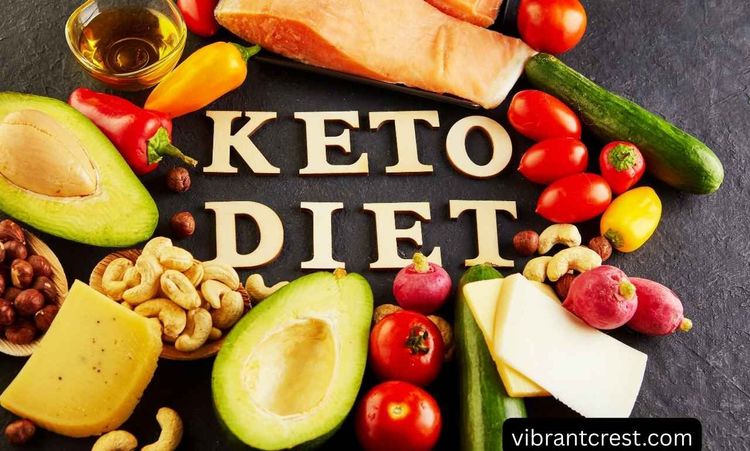Holiday weight gain is real. Between the endless parties, festive snacks, and cozy nights in, it sneaks up fast. Suddenly, jeans feel tighter, energy dips, and stepping on the scale becomes a dreaded ritual.
But here's the good news—you don't need drastic detoxes or impossible workouts. You just need to reset. The holiday season throws off routines. That’s normal. What matters most is what you do next.
The five tips in this article are practical. They're backed by science and actually doable on busy schedules. Whether you want to shed a few pounds or reset your healthy habits, this guide will help.
Let’s jump into the five ways to lose weight after the holidays without the gimmicks.
Cut Out the Sweet Stuff
Sugar is sneaky. It hides in everything from your morning yogurt to that salad dressing you thought was healthy. During the holidays, sugar overload becomes the norm. Cookies, pies, chocolate—everywhere you turn, there’s temptation.
Once the season ends, your body is likely dealing with insulin spikes and energy crashes. That’s not your fault—it’s the sugar cycle. High sugar intake messes with your hormones, especially insulin and leptin. This creates cravings, slows metabolism, and increases fat storage. Start by replacing sweet snacks with fruits or high-fiber alternatives. Grapes, apples, and berries satisfy the sweet tooth without sending your blood sugar on a rollercoaster. Avoid artificial sweeteners too—they trick your brain and may increase sugar cravings over time. Watch for “healthy” foods with hidden sugars. Granola, cereal, and smoothies often pack more sugar than dessert. Read the labels. Aim for no more than 25 grams of added sugar per day. The less sugar you consume, the quicker your body resets. Your energy improves. Hunger signals normalize. And yes, the extra pounds start to melt.
Shrink Your Stomach
Your stomach doesn’t actually shrink in size. But your appetite does reset. That bloated, overfull feeling from holiday dinners? It’s partly habit. When you eat large meals for weeks, your brain expects it. The good news? You can rewire that expectation. Start with smaller plates. It sounds simple, but studies show people eat less when their plate is smaller. You see a full plate, feel satisfied, and naturally reduce your calorie intake. Portion control is your secret weapon. Don’t measure every bite or track every gram. Just serve yourself half of what you normally would. Then pause. If you’re still hungry after 20 minutes, eat more. But often, you won’t be. Another trick is to eat slower. Your brain takes about 15–20 minutes to register fullness. If you inhale your meal, you'll likely overeat. Chew thoroughly. Put your fork down between bites.
Drink a glass of water before meals. Sometimes, we mistake thirst for hunger. Water also fills your stomach and helps control portions. Don’t starve yourself—just retrain your appetite gently. The change happens faster than you think.
Up Your Protein
After weeks of carbs and sugar, your body needs repair fuel. That’s where protein comes in. It’s essential for rebuilding muscles, balancing hormones, and keeping you full for longer. Protein helps regulate hunger hormones like ghrelin. It also preserves muscle mass while burning fat. That’s key during a weight loss journey. Losing muscle slows your metabolism. You want fat loss—not muscle loss. Add lean protein to every meal. Eggs at breakfast. Chicken breast or tofu for lunch. Beans or fish for dinner. Don’t forget snacks—Greek yogurt, nuts, or a protein shake are great between meals. Focus on whole, unprocessed protein sources. Stay away from deep-fried meats or heavily processed deli cuts. And if you're vegetarian or vegan, mix plant-based proteins like lentils, quinoa, or tempeh to meet your needs. Protein doesn't just support your body—it keeps you satisfied. That means fewer cravings, less snacking, and a natural reduction in calorie intake.
Cut Back on the Cocktails
Let’s talk about the drinks. Alcohol can wreck your weight loss progress faster than you realize. Holiday cocktails are loaded with sugar, calories, and empty carbs. Even worse, they lower your inhibitions. That makes overeating more likely.
When alcohol enters your system, your body stops burning fat to process it. That stalls your metabolism. On top of that, drinking often leads to poor food choices. Pizza at midnight? Extra dessert? You wouldn’t do that sober.
Start by skipping the sugary cocktails. If you drink, stick to clear liquors with soda water. Avoid beer, sweet wines, and mixed drinks. Even better, choose non-alcoholic alternatives like sparkling water with citrus or kombucha.
You don’t need to quit drinking completely. Just cut back. Limit yourself to one or two drinks per week. Track your mood, cravings, and energy during alcohol-free days. You’ll notice improvements fast.
Water helps too. Alcohol causes dehydration and water retention. Drink water between each alcoholic drink and before bed to reduce puffiness and fatigue.
You’ll feel sharper. Your skin will glow. And yes—your weight will go down.
Increase Your Daily Exercise
The cold weather, busy schedules, and shorter days make it easy to skip workouts. That’s common after the holidays. But movement is critical for weight management and mental health.
Start small. You don’t need a gym membership or fancy equipment. Go for daily walks. Take the stairs. Stretch in the morning. Move your body, even if it’s just for 15 minutes.
Consistency matters more than intensity. Daily movement resets your metabolism. It boosts your mood and improves sleep. These things work together to support sustainable fat loss.
If you already exercise, add a twist. Incorporate strength training or resistance workouts. Lifting weights builds muscle. More muscle means higher calorie burn—even while you sleep.
Try mixing it up with aerobic activities like dancing, swimming, or using a rowing machine. Variety keeps things fun and challenges different muscle groups. You don’t need to be perfect. You just need to move.
And don’t forget NEAT—non-exercise activity thermogenesis. That’s all the small movements throughout the day. Cleaning, walking the dog, cooking—all of it adds up.
Movement isn’t punishment for holiday fun. It’s a gift to your future self.
Conclusion
Holiday weight gain doesn’t have to linger. It’s temporary—just like the season. The key is to return to simple, consistent habits that support your long-term goals.
Cut sugar. Shrink your portions. Eat more protein. Drink less alcohol. Move daily.
You don’t need to starve yourself or follow extreme diets. Focus on balance. A sustainable diet and healthy lifestyle will serve you better than any quick fix.
Give your body time to adjust. Be patient. Trust the process. Most importantly, be kind to yourself.
Ready to take back control of your health? Start with just one of these five steps today.




